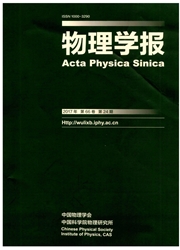

 中文摘要:
中文摘要:
创建了地球场景数据集, 结合全极化微波辐射传输模型, 仿真了地球场景亮温. 基于自主推导的全极化天线温度方程, 通过GRASP9软件生成天线方向图, 模拟了辐射计的天线温度. 进而利用多元线性回归方法, 求取了天线交叉极化校正M矩阵, 实现了对星载极化相关型全极化微波辐射计天线交叉极化的校正. 试验结果表明: 天线温度与地球场景亮温之间具有良好的线性关系; 天线交叉极化对全极化微波辐射计正交通道亮温影响明显, 尤其以对垂直极化亮温误差的影响最为显著; 校正后各通道的天线交叉极化得到了有效的减小, 交叉极化优于-23 dB, 极化纯度大于99.5%, 采用M矩阵校正及消除天线温度中交叉极化亮温影响的方案是切实可行的. 该校正技术可以实现星载极化相关型全极化微波辐射计在轨运行后对于天线交叉极化的最终校正.
 英文摘要:
英文摘要:
In this paper, we simulated the earth scene brightness temperature by creating the earth scene data sets and using polarimetric microwave radiative transfer model. On the basis of the fully polarized antenna temperature equation we have derived, the radiometer antenna temperature was also simulated by generating antenna pattern through GRASP9 software. Then by using multiple linear regression method, the M matrix was calculated and the antenna cross-polarization correction for spaceborne polarimetric microwave correlation radiometer was realized. The correction results show that the antenna temperature and earth scene brightness temperature have a linear relationship. Antenna cross-polarization influences the orthogonal channels brightness temperature seriously, especially the vertical polarization brightness temperature. The antenna cross-polarization for each channel has been effectively reduced. Residual cross-polarization is better than -23 dB and the polarization purity is greater than 99.5%. Correction of using M matrix to eliminate the antenna cross-polarization is feasible. It has been proved that this technique is most appropriate for the final correction of antenna cross-polarization for the spaceborne polarimetric microwave correlation radiometer on orbit.
 同期刊论文项目
同期刊论文项目
 同项目期刊论文
同项目期刊论文
 期刊信息
期刊信息
